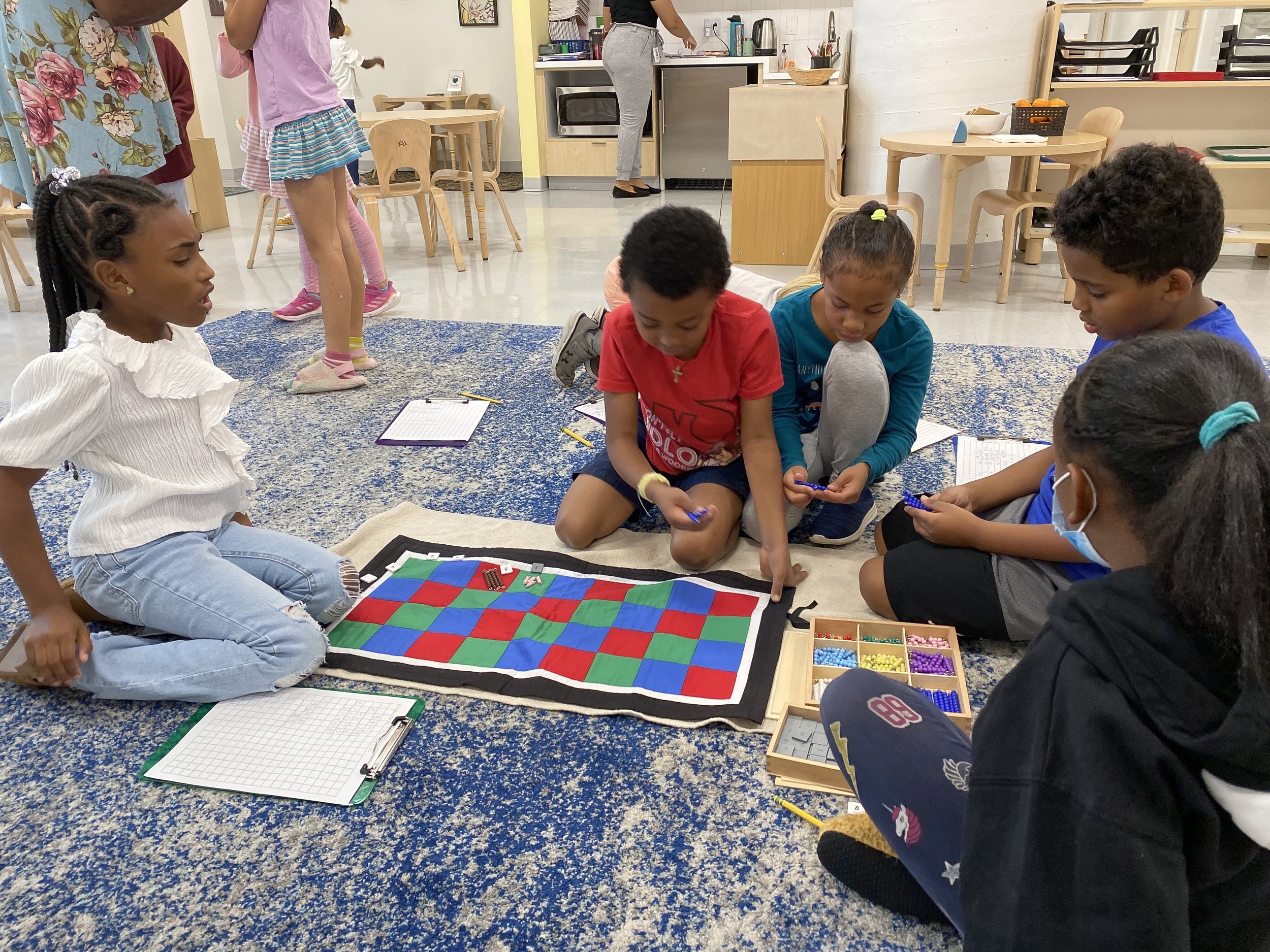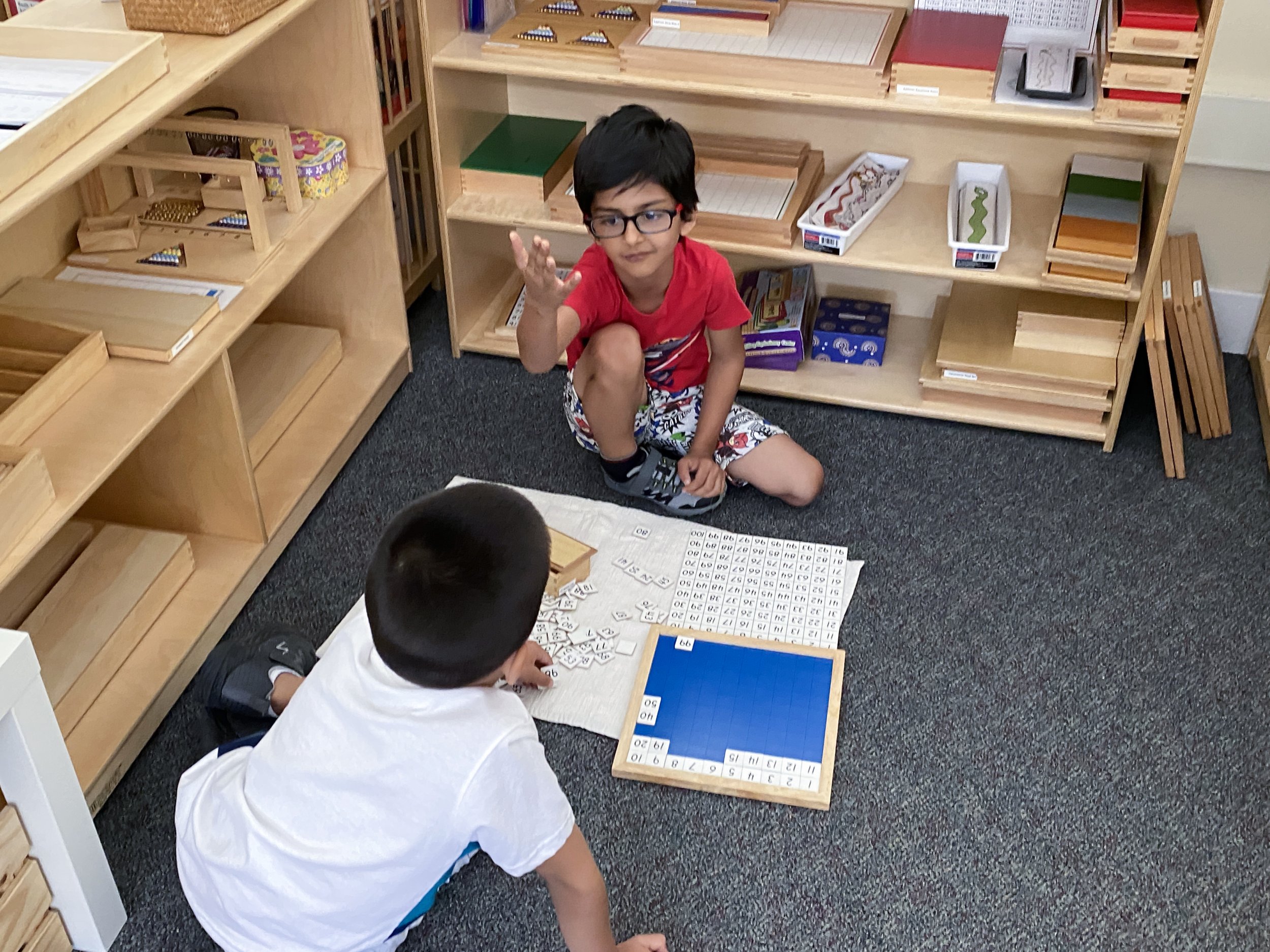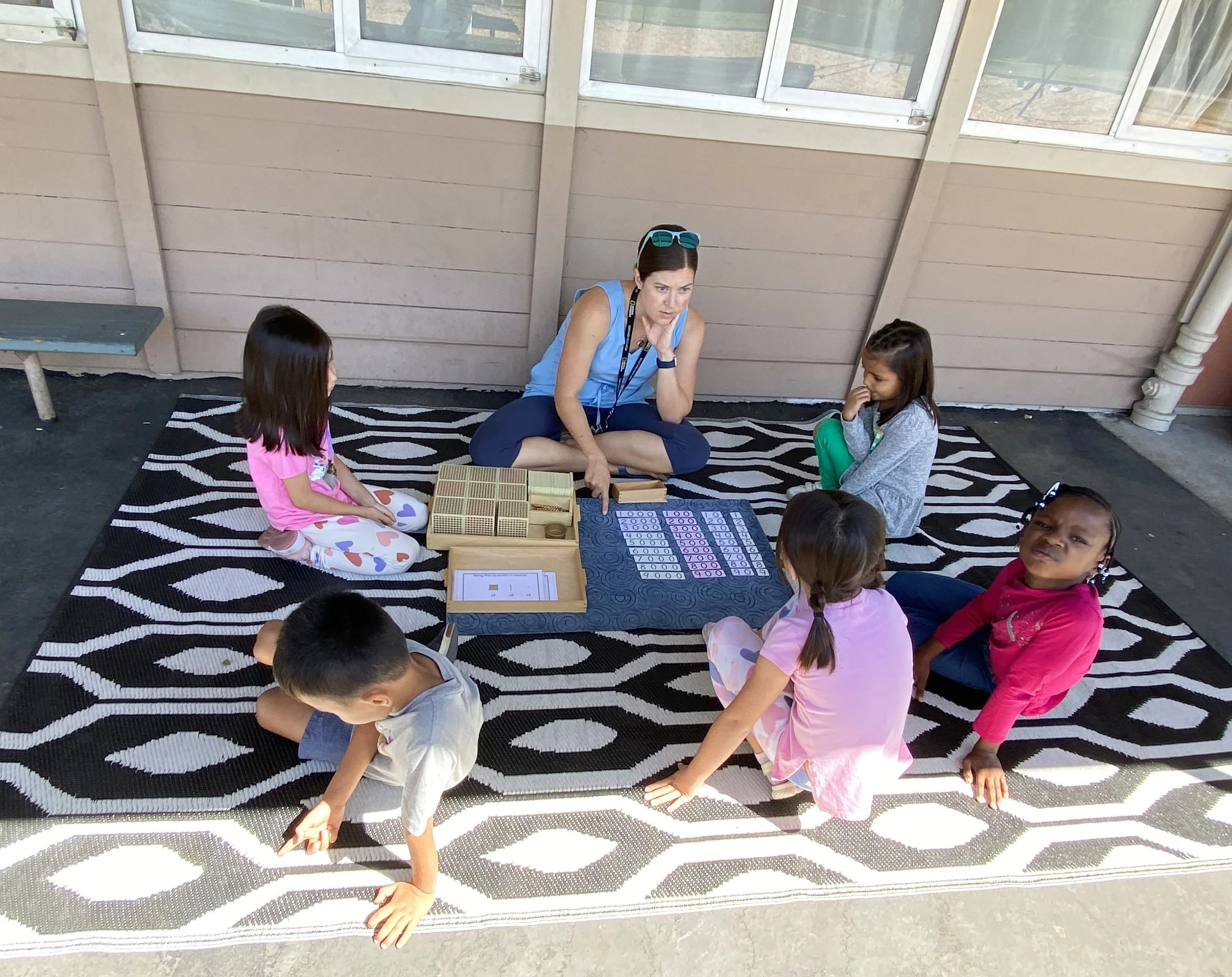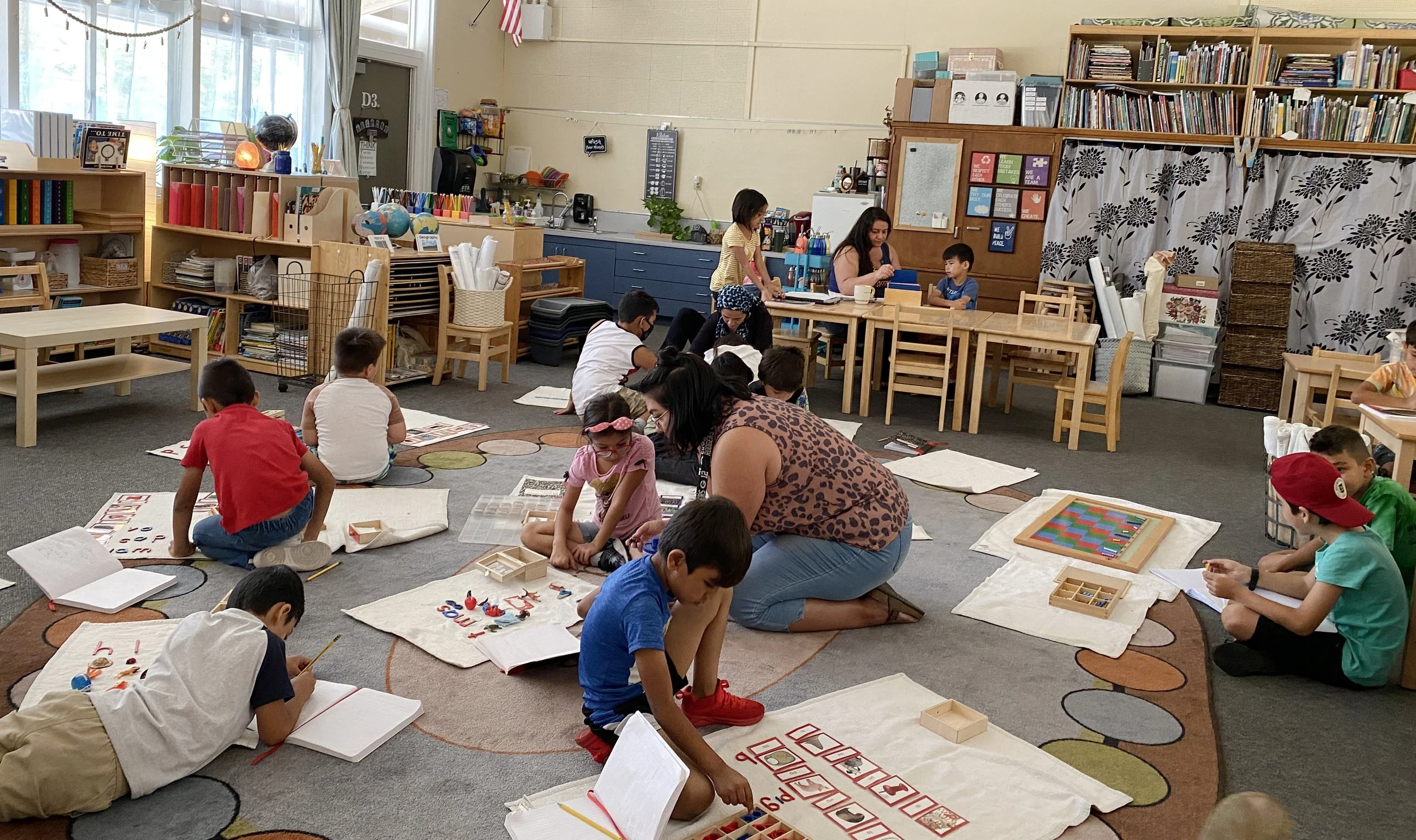Montessori Early Intervention for the Whole School
Thursday, August 1, 2024
11:00am - 5:00pm ET
Early Intervention training is part of the System of Justness, a framework for working with children that is based on Montessori principles.
"Democracy begins at birth. The child must know what is going to happen to [them], that [they] will not be seized suddenly, that [their] permission will be asked first."
- Dr. Maria Montessori
A shared, coherent approach to working with all children, ensuring their full inclusion in Montessori classrooms.
In this one day, 6-hour course participants will learn the key components and implementation procedures of the Montessori Early Intervention (MEI) process, an essential part of the System of Justness approach to creating equitable, joyous Montessori classrooms. After this course, adults will emerge prepared to create Action Plans that provide effective support and scaffolding so all children can thrive in the Montessori setting. Participants will be provided with resources and tools necessary to embed the MEI process into their school communities, in a method that fosters whole school collaboration.

“MEI training has been an amazing resource in really understanding how to get to the root of a behavior in order to create the steps for both school and home to help this child succeed.”
Why constructivist thinking?
Education today approaches the work of learning from a range of perspectives, two of which are behaviorist and constructivist. Before exploring the constructivist approach underlying the Montessori method, it’s important to understand the behaviorist approach within which many educators were educated.
Behaviorist Approach
This is the idea that learning happens when there is a proper response to stimulus, such as correct answers (proper response) to math problems on a worksheet (stimulus). The child is merely reactive to the conditions in the environment without being expected to take an active role in discovery. The belief is that facts and information are separate from the learner and are something to be acquired. Behaviorism then is focused on the outward behavior or result, situating learning outside of the learner.
Constructivist Approach
By contrast, constructivism sees learning as creating meaning from experience. This thinking rests on the idea that learners acquire knowledge through active engagement. Students learn by fitting new information together with what they already know. With children as active partners, the method relies on practitioners’ understanding of and ability to implement the constructivist approach, though many themselves have been raised through a behaviorist approach.
This thinking doesn’t simply inform what is happening in classrooms separate from the way the rest of the school is run. As one ecosystem, there also needs to be a synchronized understanding and use of the same framework. When implementing the Montessori method across the whole school, understanding the distinction between behaviorist and constructivist approaches and activating a commitment to using constructivist methods becomes the shared frame.
This course takes you through a constructivist approach to responding to all children across all school environments. Created for whole schools, this course is best suited to teams ready to make a change.
System of Justness
Early Intervention training is part of the System of Justness, a framework for working with children that is based on Montessori principles. This framework aims to ensure that all children are able to fully participate in Montessori classrooms, regardless of their individual needs. The practice centers on understanding the needs of children and providing them with the support they need to be successful.
System of Justness is a school-wide, Constructivist approach that allows Montessori communities to give consistent responses to children in need within a known structure. The System is also also the framework for the Nautilus Approach.

“Elizabeth's passion really shines through and gets you excited about the learning in each session. Her credibility is unmatched and she really is responsive to our needs and concerns.”
Like the method itself, we begin the learning process with a direct aim that gives us a sense of what we will know and be able to do once we are done.
Know
Why we need a consistent System of Justice
What is the design and what do adults need to do to provide support?
How will keep track and how will data be useful?
Do
Family Meetings
Team Meetings
Progress Monitoring
“The course is based on practical experience, making all the tools and information relevant and easy to implement.”
One day - live, virtual course.
Receive peer support and practical tools ready for immediate implementation.
Thursday, August 1, 11:00am-5:00pm ET
Cost: $175



